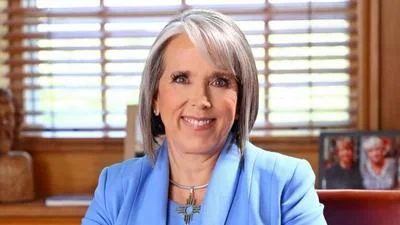The Santa Fe New Mexican newspaper recently ran an article about the emergence of the New Mexico Sun. I occasionally submit articles to the paper but am not an owner or investor. The article appeared to question the legitimacy of the Sun. It was not, however, your usual hit piece. The New Mexican, founded 63 years before New Mexico became a state, specializes in packaging by wrapping its beliefs between the lines and tying them up with a silken bow of intimidation.
That is what we experience when we open a paper or log on to its website. We get journalism with a twist - story lines that are unmistakable in their point of view. No longer can we get unbiased answers to who, what, when, where, why and how. A political angle manifests in the pointed turn of a phrase. For example, election denier has become an acceptable adjective by reporters to refer to conservatives or Republicans who question the fairness of an election. No matter that the same media gave a thumbs-up to Democrats who challenged election results back in 2000 and 2016.
The fact is that America's media is constantly changing, and that goes double for America's newspapers. Apart from the purchases of local papers by media giants like Gannet and others, local papers have been suffering financially because of new advertising platforms that have sucked ad dollars from them and the spread of digital technology. Media consolidation, financial pressure, and advances in technology have been the death knell for hundreds of small-town newspapers that were devoted to telling their readers the hard facts about events in their communities. When we lost these local papers we also lost great reporters and editors who respected the time-honored promise of telling the truth without spin. Opinion was left to the editorials or commentary columns and was clearly labeled as such.
The line between reporting and opinionating is now blurred.
The once-great objective newspapers that we all grew up with have morphed into political newsletters, and that goes for their digital versions as well. Today, you can choose the news approach or slant that suits you best. Critics will call this trend a surrender to objectivity and an embrace of political confirmation bias. Where does this leave those of us who still crave news that delivers unbiased reporting AND properly labeled opinion? Is it even possible to find news where the facts are delivered absent hyperbole or inflammatory adjectives?
The article about the Sun is an example of reporting that walks the fine line between reporting and opinion—almost. It smacks of the 'exposé' journalism that is a hallmark of tabloids and has seeped into mainstream newspapers. While the article does not accuse anyone of being MAGA, extremists or über-Right, it touches on the issue of powerful forces controlling America's media.
What it does NOT address is the First Amendment, and the right of anyone whether Conservative or Liberal to start their own newspaper. I was interviewed by the New Mexican reporter for the story, but by using my quote that the Sun "isn't funded by advertising,” the New Mexican reporter seems to imply that only papers that rely on advertising are untainted by outside influence. This is ridiculous as any honest advertising representative or editor will tell you.
I would argue that papers without advertising have a better shot at staying impartial, especially during these times of cancel culture. Indeed, the Sun's own take on delivering the news was well-stated by the publisher in the article: "I’m tired of one-sided news coverage that doesn’t give the full picture” (and) I’m tired of being told what to think about issues… The New Mexico Sun was created to make New Mexico a better state through more complete news coverage.”
As a former publisher of a small town newspaper in the early 80s, I can identify with that statement. The daily paper in my community was frequently criticized for putting a 'spin' on the news, and my paper had the ability to dig deeper to uncover the details of a story that the daily reporters missed. It wasn't because those reporters didn’t want to; it was because the pressure of putting out a daily paper, the cost of overhead, and the ad-to-editorial ratio didn’t allow for in-depth reporting.
And that brings up the eternal conflict between the bean counters and the idealists who see writing as a vocation. There will always be someone somewhere to tell a journalist, "We don't have the time or the space for that story,” or “by running your story we will offend a big advertiser or a politician." While we can’t control how the news happens we can still, thankfully, choose which papers are the most trustworthy to report it. May it always be so.
Stephan Helgesen is a retired U.S. diplomat. He is the author of 12 books, including on American politics, and has written over 1,300 articles on politics, economics and social trends. He can be reached at: stephan@stephanhelgesen.com








